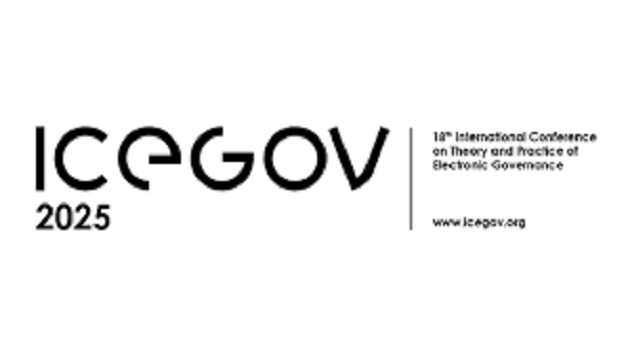General News
Dark Cloud over Postal Commission Bill

Concern is mounting among courier and logistics operators that the federal government may have abandoned the National Postal Policy and Nigeria Postal Service Bill, a set of all important documents touted as transformative for the postal industry, Nigeria CommunicationsWeek can report.
The policy and bill have been embroiled in web of confusion more than ten years after stakeholders began moves to rejig the industry.
Nigeria faces significant opportunity costs that arise from an inefficient postal sector including: loss of mails, poor public opinion of the postal industry, poor infrastructure and high operating costs, and operational inefficiency.
Courier operators in the country are also worried that Courier Regulatory Department (CRD), which is an arm of NIPOST, is still regulating the courier industry in the country, when the same NIPOST has a courier outfit called the NIPOST EMS.
Their fear is that CRD will not be fair in its regulatory duties since the NIPOST EMS is competing with them in the same courier business.
For this reason, operators are pushing for an independent regulatory body outside NIPOST, and CRD.
Mr. Siyanbola Oladapo, president, Association of Nigeria Courier Operators (ANCO), called on the National Assembly to commence debate on the Bill to stem the over N300 billion being lost annually by the government and the industry.
Oladapo who is also is the managing director of Bowill Errand Limited waxed worriedly at the exclusion of the industry players in the draft of the bill.
“The operators were not consulted when the principles of the Bill were penciled down. You cannot shave a man’s head in his absent. An industry of more than 200 operators deserves a right to be represented on the Board of the Commission when it is finally born. That is an aspect the present administration should look into.”
Nodding in agreement, Mr. Toyin Adeojo, the publicity secretary of ANCO suggested that both the initial Bill and the executive Bill should be harmonized to ensure the aims of the policies are achieved.
To him, “The operators need the backing of the Federal Government and the lobbyists as appointed to ensure that a single Bill that reflects the yawning of the operators and the industry at large is achieved”.
General News
FG Drops Merger of NCAA, NAMA

The Minister of Aviation and Aerospace Development, Festus Keyamo has disclosed that President Bola Tinubu has stepped down the merger of the Nigeria Civil Aviation Authority (NCAA) and the Nigerian Airspace Management Agency (NAMA) as recommended by the Steve Oronsaye report.

He also revealed that the aviation industry was exempted from the foreign travel ban placed on federal government officials last year. The President announced the ban which took effect from April last year.
Keyamo disclosed that the aviation sector was exempted from the ban because President Tinubu is desirous of change and growth in the sector.
The ban was placed following the rising cost of travel expenses by Ministries, Department and Agencies of Government.
The memo released last year stated: “Considering the current economic challenges and the need for responsible fiscal management, I am writing to communicate Mr Presideni’s directive to place a temporary ban on all publicly funded international trips for all federal government officials at all levels, for an initial period of three months from 1st April 2024.
“All government officials who intend to go on any publicly funded international trips must seek and obtain Presidential approval at least two weeks before embarking on any such trip, which must be deemed necessary”.
The Minister disclosed the reasons for the exemption in Abuja at the 25th anniversary celebration of the Nigeria Civil Aviation Authority (NCAA).
On the merger of NCAA and NAMA, he said: “From modest beginnings, we have witnessed remarkable transformations in our sector, ranging from enhanced supervisory measures and policies formulation, safety and security oversight, robust legislative and regulatory frameworks, advancements in air traffic management, development, expansion and certification of airports, accurate meteorological services, timely accident investigations, manpower development, and indeed, the growth of indigenous airlines.
“These achievements have not come without challenges. However, with the efforts of past administrations and the total support of the present administration under the dynamic leadership of His Excellency President Bola Tinubu through the Renewed Hope Agenda and the five focus areas of the ministry, we have overcome challenges and reached new heights.
“NCAA is a child of God, and despite turbulent waters and attempts sometimes to kill the NCAA, the NCA has survived 25 years. And I’m sure you know that any child that is born at the age of 25, of course, is undoubtedly an age of maturity.
“The Oronsanye reports also recommended the merger of NCAA and NAMA. And so that was also another attempt to kill the NCAA. That report was passed from Jonathan’s government to Buhari’s government, and then to the present government.
“It was one of the first items we considered in this government. So the Oronsanye reports came up that day, and the president went on and on, considered every item in the Oronsanye report, and asked the council to vote. And for each item, they would listen to the ministers and so the president came to the merger of NCAA and NAMA as one body.
“I raised my hand, I spoke for about five minutes and because we have a wonderful president who listens to good counsel and good arguments, after I finished speaking, he said, an item dropped, the merger of NCAA and NAMA would not remain”.
On the reasons for the exemption, he said: “It is a fact that the aviation sector remains a pillar of national development, facilitating trade, tourism, investment, and cultural exchange. Whilst it is yet to realize its true potential in terms of contribution to our nation’s Gross Domestic Product (GDP), we must renew our commitment to ensuring a more progressive, sustainable, inclusive, innovative, and prosperous aviation industry.
“This necessitates the continuous adoption and integration of emerging technologies, enhancing infrastructure, and investing in human capital development to keep our skies safer and secure and attain cohesive and efficient air transportation services.
“The President directed that foreign travels should stop, except in exceptional circumstances. Last year, there was a memo around March that said it was for three months, and the President, because of his desire to ensure that we are frugal in our spending; there was another memo again in December reiterating that memo last year we should cut down on foreign travels, except by direct presidential approval.
“But let us also give particular thanks to Mr. President, because despite that memo, since last year, he has made an exception for the aviation industry. I wrote a memo to him after that directive on behalf of the entire agency that says; Sir, we respect your directive; yes, we need to be frugal because the Nigerian people have also tightened their belts in the face of the economic reforms that are taking place.
“However, because of the safety of this sector, Sir, we need to make some exceptions for this sector. And the President graciously granted this for the aviation sector”.
General News
Researchers Develop Innovative Treatment for Malaria

An international team of researchers have introduced a groundbreaking drug, known as the covalent kinase inhibitor, which shows promise in combating treatment-resistant malaria.

Developed by chemists and bioscientists from the University of Glasgow, this innovative drug could surpass current medications by effectively targeting and disabling the proteins used by the Plasmodium falciparum parasite to replicate within the human body.
This is according to a report titled “Targeting Pf CLK3 with Covalent Inhibitors: A Novel Strategy for Malaria Treatment.”
The development, led by chemists and bioscientists from the University of Glasgow, was outlined in a November publication in the “Journal of Medicinal Chemistry.”
According to the researchers, covalent inhibitors form bonds with proteins, usually irreversibly modifying them, and this new drug could be more effective than current medications at all stages of malaria infection.
The new drug works by permanently disabling a protein that Plasmodium falciparum, one of the mosquito-borne parasites that spread malaria, uses to replicate itself inside the human body.
The drug also has the potential to work as a single-dose treatment, a significant improvement over existing therapies.
This breakthrough marks the first adaptation of an approach from cancer treatments to tackle malaria.
The team expressed optimism that the parasite is unlikely to develop resistance to the new drug, which targets the protein Pf CLK3 and disrupts the parasite’s ability to splice RNA.
The researchers, including Prof. Martins Emeje from the Nigerian Natural Medicines Development Agency and Prof. Oyewale Tomori from the West African Academy of Sciences, emphasise the importance of regular calibration and accreditation for medical laboratories to ensure accurate results and reliable treatment.
General News
Nigeria to Host ICEGOV 2025, A Milestone in Digital Governance and Global Leadership

The Federal Ministry of Communications, Innovation & Digital Economy, Nigeria has been officially confirmed as the host country for the 2025 International Conference on Theory and Practice of Electronic Governance (ICEGOV) edition.

This confirmation by the United Nations University Operating Unit on Policy-Driven Electronic Governance (UNU-EGOV) marks a historic milestone in our nation’s digital transformation journey, showcasing Nigeria’s leadership in digital governance, innovation, and technological advancements on the global stage.
ICEGOV is a prestigious global conference that convenes governments, academia, international organisations, industry leaders, and civil society to exchange insights, research, and best practices in electronic governance.
Hosting this event presents a unique opportunity to strengthen Nigeria’s digital ecosystem, foster multidisciplinary collaborations, and drive policy innovations that will shape the future of governance in Africa and beyond.
Speaking on this momentous achievement, the Honourable Minister of Communications, Innovation & Digital Economy, Dr. ‘Bosun Tijani, stated: “Nigeria’s selection to host ICEGOV 2025 is a recognition of our efforts to drive digital transformation and innovation in governance.
“I am a firm believer in the importance of the academia and research in supporting global discussions on e-Governance and we have seen this in some of the input in government initiatives like the National AI Strategy and the National Digital Economy and e-Governance Bill which are laying the foundation for the growth of Nigeria’s Digital Economy.
“As we prepare to welcome you all to Nigeria, we look forward to very useful outcomes that will be beneficial for the growth of digital governance and policy development globally.”

 News2 days ago
News2 days agoTikTok Returns on Apple, Google US App Stores as Trump Delays Ban

 General News2 days ago
General News2 days agoResearchers Develop Innovative Treatment for Malaria

 E-Financial2 days ago
E-Financial2 days agoAfrican Union Launches Credit Rating Agency to Promote Regional Economic Integration

 Telecom2 days ago
Telecom2 days agoVisa Launches Report on Digital Payment Landscape in Nigeria, Shows Positive Outlook

 Broadcasting2 days ago
Broadcasting2 days agoFG Kickstarts Construction of Emerging Technologies Institute in Kano

 General News2 days ago
General News2 days agoNigeria to Host ICEGOV 2025, A Milestone in Digital Governance and Global Leadership

 General News2 days ago
General News2 days agoMTN Nigeria Foundation Supports Education with Donation of School Supplies to 1000+ Students

 Broadcasting2 days ago
Broadcasting2 days agoFamily Marks one-year Memorial of Late APC Chieftain, Ojougboh with Charity Outreach

























